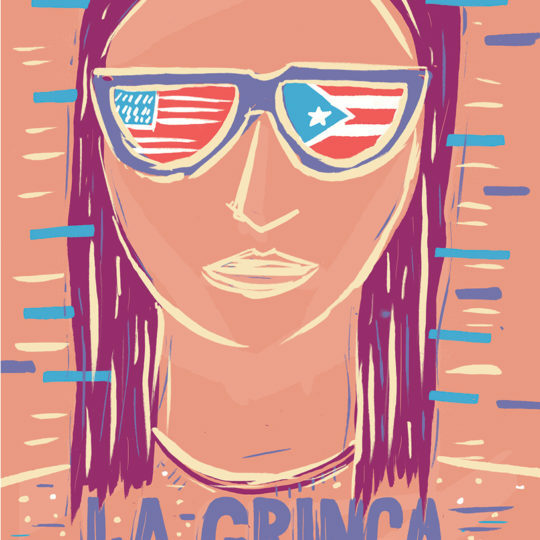 If you grew up with Puerto Rican traditions, love the island culture, or simply want to learn more about authentic Puerto Rican traditions, then you will enjoy the play La Gringa (Spanish) by Carmen Rivera. I watched this at Cleveland Public Theatre and truly enjoyed being able to experience the many-faceted aspects of Puerto Rican culture without leaving beautiful Cleveland.
If you grew up with Puerto Rican traditions, love the island culture, or simply want to learn more about authentic Puerto Rican traditions, then you will enjoy the play La Gringa (Spanish) by Carmen Rivera. I watched this at Cleveland Public Theatre and truly enjoyed being able to experience the many-faceted aspects of Puerto Rican culture without leaving beautiful Cleveland.
The play revolves around María, an American raised in New York, who travels for the first time to Puerto Rico on a journey to discover more about her parents’ native country. Contrary to her expectations, she is not welcome at all and is continuously viewed as a foreigner… an American “gringa”. Ironically, María feels the same sense of being an outsider at home in New York City where she is viewed as a Puerto Rican, rather than a “true American”. Essentially, our heroine goes through an identity crisis and a dual challenge: she is both a foreigner in her homeland, and a foreigner in her parent’s homeland though she grew up with Puerto Rican traditions for her entire life.
La Gringa (Spanish) shows the reality of many Hispano-Americans families who have immigrated to the United States. Many children born and raised in America lose the mother tongue or the ability to speak Spanish fluently. While María speaks Spanish, she still carries an accent that reveals that she did NOT grow up in Puerto Rico. It is also shown throughout the play that María often needs assistance from family to pronounce words properly, or to translate her words and thoughts from English into Spanish (one good example is when she used the false cognate “ancestors” and her cousin corrected her with the proper word “antepasados”). María, like many Puerto Ricans raised in America, is proud of her heritage but feels the need to prove this to her relatives living on the island.
The writer, Carmen Rivera, tackles many social issues like displacement, immigration, belonging, culture-shock, soul-searching, and struggling to stay true to one’s own values in La Gringa (Spanish). Almost any audience member who has moved to, or even visited, another country can relate to these issues on some level.
I thoroughly enjoyed watching the play, which I believe incorporates well many elements from the Puerto Rican culture, like customs and culinary traditions. The frog singing provides the background music “el coquí”; the parrandas navideñas “Christmas Caroling”; (la bomba); the smell of Puerto Rican coffee; cropping Yuca and preparing the Pasteles and the visit to the Yunque; all these give you a vivid feeling of being in Puerto Rico.
As with any play, there are some aspects that could be improved—perhaps using more traditional dress that represent the peasant life, traditional straw hat (pava), the red cotton kerchief and the red cotton sash and having more abundant jibarito music (which abounds in Puerto Rico), and being careful to have actors incorporate the Puerto Rican dialect (rather than their native dialect), as much as possible. The stage decorations should represent more the countryside of Puerto Rico, by showing more nature: Palm trees, sugar cane, birds, and the props used should look more natural.
Overall, the play was funny and enjoyable. I loved seeing the various elements of Puerto Rican culture: customs, culinary traditions, music, and language. La Gringa (Spanish) truly invokes the feeling that you are in Puerto Rico. All in all, I highly recommend this play to everyone because it is so relevant to the experiences that all immigrants face in their daily life.

